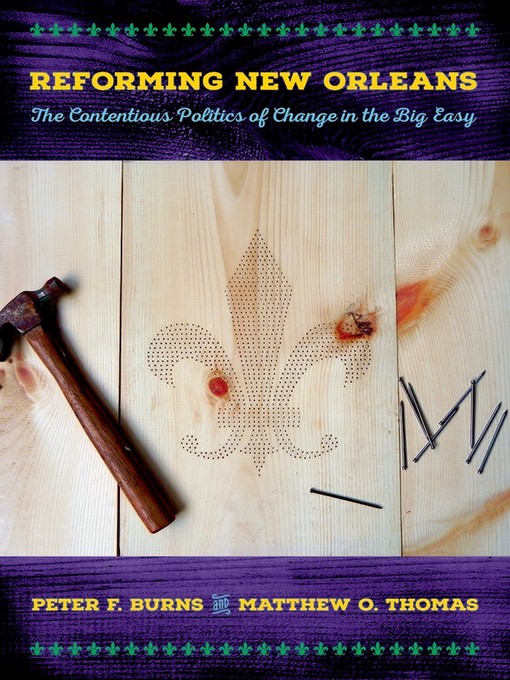Hurricane Katrina devastated New Orleans in 2005, but in the subsequent ten years, the city has demonstrated both remarkable resilience and frustrating stagnation. In Reforming New Orleans, Peter F. Burns and Matthew O. Thomas chart the city's recovery and assess how successfully officials at the local, state, and federal levels transformed the Big Easy in the wake of disaster. Focusing on reforms in four key sectors of urban governance—economic development, education, housing, and law enforcement—both before and after Katrina, they find lessons for cities hit by sudden shocks, such as natural disasters or large-scale financial crises.
One of their key insights is that post-disaster recovery tends to limit local control. State and federal officials, national foundations, and local actors excluded by pre-Katrina politics used their resources and authority to displace entrenched local interests and implement a public agenda focused on institutional and governmental change. Burns and Thomas also make clear reform in New Orleans was already underway before Katrina hit, but that it had focused largely on upper- and middle-class residents, a trend that accelerated after the storm. The market-centered nature of the reforms have ensured that they largely benefited city and regional elites while not significantly aiding the city's working-class and impoverished populations. Thus reform has come at a cost and that cost, in the long term, could undermine the political gains of the post-Katrina era.
